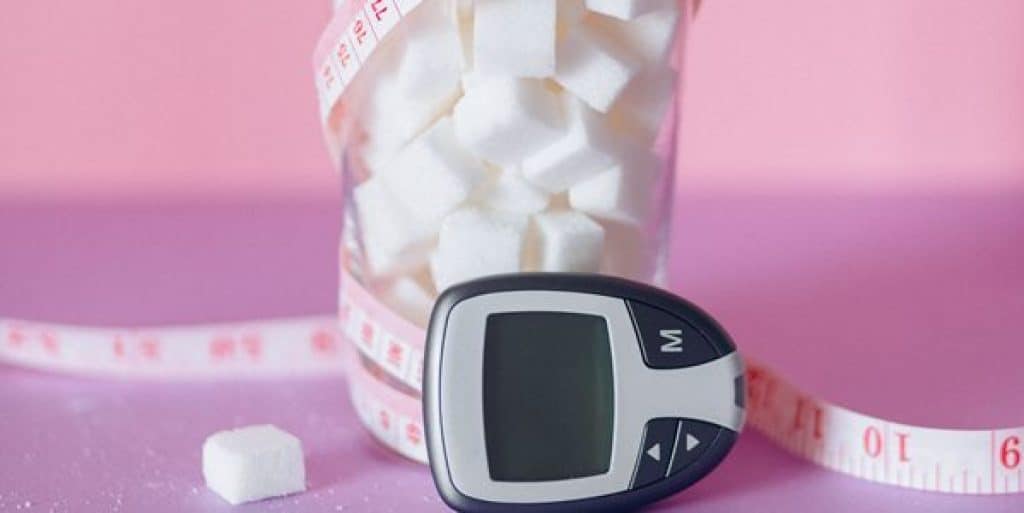Low blood sugar, or hypoglycemia, can occur in people without diabetes due to several reasons. It can be due to certain medical conditions or medications that affect blood sugar levels. Low blood sugar can lead to several symptoms, such as dizziness, confusion, sweating, and fatigue. These symptoms can have a significant impact on a person’s quality of life, and if left untreated, they can be life-threatening.
In this article, we’ll discuss the common symptoms of low blood sugar without diabetes, the causes of this condition, and what you can do to manage it effectively.
What is Low Blood Sugar?
Low blood sugar occurs when the sugar (glucose) levels in your blood drop below normal levels. Glucose is the primary source of energy for the body, and it comes from the food we eat. When you eat food, your body breaks it down into glucose, which is then transported to your cells through the bloodstream. The hormone insulin helps your cells absorb glucose from the blood and use it for energy.

In people without diabetes, blood sugar levels are usually maintained within a narrow range by the body’s natural regulatory mechanisms. When blood sugar levels drop too low, the body releases hormones that trigger the release of stored glucose from the liver, which helps to raise blood sugar levels. However, in some cases, these mechanisms may not work correctly, leading to low blood sugar levels.
Symptoms of Low Blood Sugar Without Diabetes
The symptoms of low blood sugar without diabetes can vary from person to person and can range from mild to severe. Common symptoms of low blood sugar include:

- Shakiness or tremors
- Sweating
- Dizziness or lightheadedness
- Confusion or difficulty concentrating
- Anxiety or irritability
- Fatigue or weakness
- Headaches
- Blurred vision
- Hunger or nausea
- Rapid heartbeat
These symptoms can develop suddenly and may be mistaken for other conditions such as anxiety or stress. In severe cases, low blood sugar can lead to seizures, loss of consciousness, and even coma.
Causes of Low Blood Sugar without Diabetes
There are several medical conditions and medications that can cause low blood sugar without diabetes. Some of the common causes include:
Medical Conditions
Certain medical conditions can cause low blood sugar levels, even if you don’t have diabetes. For example, tumors that produce insulin, called insulinomas, can cause hypoglycemia. Other medical conditions that can cause low blood sugar levels include liver disease, kidney disease, and adrenal insufficiency. If you have any underlying medical conditions, it’s essential to work with your healthcare provider to manage them effectively to prevent hypoglycemia.
Medications
Certain medications can cause low blood sugar levels as a side effect, especially if you take them on an empty stomach or if you take too much. Some common medications that can cause hypoglycemia include insulin, sulfonylureas, meglitinides, and GLP-1 receptor agonists. If you’re taking any of these medications, it’s important to monitor your blood sugar levels regularly and talk to your doctor if you experience symptoms of low blood sugar.
Stress
Stress can cause the body to release hormones that raise blood sugar levels, but it can also lead to a drop in blood sugar levels, especially if you have diabetes. When you’re under stress, your body releases hormones such as cortisol and epinephrine, which can cause the liver to release glucose into the bloodstream. However, if you have diabetes and are taking medications that lower blood sugar levels, these hormones can counteract the effects of the medication and lead to hypoglycemia.
Alcohol Consumption
Drinking alcohol can cause low blood sugar levels, especially if you drink on an empty stomach. Alcohol can interfere with the liver’s ability to release glucose into the bloodstream, which can lead to a drop in blood sugar levels.

Additionally, alcohol can also interfere with medications used to treat diabetes, such as insulin or sulfonylureas, which can further lower blood sugar levels.
Exercise
Regular exercise is essential for maintaining good health, but it can also lower blood sugar levels, especially if you have diabetes. When you exercise, your muscles use glucose for energy, which can lead to a drop in blood sugar levels. It’s essential to monitor your blood sugar levels before, during, and after exercise, so you can adjust your food intake and medication if needed.
Fasting
Fasting, or not eating for an extended period, can also cause low blood sugar levels, especially if you have diabetes. When you fast, your body doesn’t have a source of glucose to maintain blood sugar levels, which can lead to hypoglycemia. It’s essential to monitor your blood sugar levels if you’re fasting, and to break your fast if your blood sugar levels drop too low.
Conclusion
Low blood sugar levels can be a cause for concern, even if you do not have diabetes. It is essential to be aware of the symptoms and causes of low blood sugar levels, and take steps to prevent and manage them. Maintaining a healthy lifestyle, monitoring blood sugar levels regularly, and seeking medical attention if needed can help prevent the complications of low blood sugar levels. Remember to always consult with a healthcare professional before making any changes to your diet or medication.
Frequently Asked Questions (FAQs)
To prevent low blood sugar levels without diabetes, it is essential to maintain a healthy lifestyle. This includes regular exercise, a balanced diet, and adequate sleep. It is also important to monitor your blood sugar levels regularly and adjust your diet and medication accordingly.
Yes, severe low blood sugar levels can be life-threatening, and it is essential to seek medical attention if you experience symptoms such as confusion, seizures, or loss of consciousness.
Yes, certain medications, such as insulin and sulfonylureas used to treat diabetes, can cause low blood sugar levels. Other medications, such as beta-blockers, can mask the symptoms of low blood sugar levels.
Frequent episodes of low blood sugar levels can cause long-term health problems, such as nerve damage and vision problems. It is essential to monitor and manage blood sugar levels to prevent such complications.
Yes, stress can cause low blood sugar levels by triggering the release of stress hormones that interfere with the body’s ability to regulate blood sugar levels.
